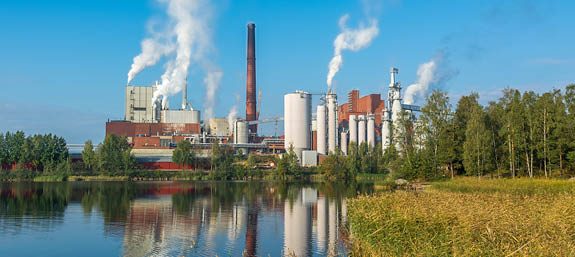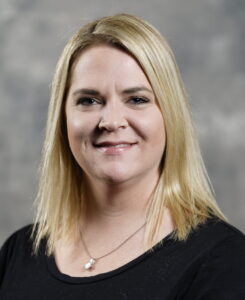
An Unanticipated Risk of COVID-19: Legionella Exposure
August 25, 2020
By: Jason Callahan, MSc, CIH and Adrianne Watkins, CIH
As companies begin to return to normal operations, they must consider a potentially unanticipated risk for their employees and visitors: Legionella exposure.
Since March, many buildings have functioned at reduced capacities or have been unoccupied due to COVID-19. As a result, less chlorinated water and disinfectant has been in water systems, providing an optimal environment for Legionella growth. Cooling towers, often used as part of facilities’ HVAC systems, present one of the most common problem areas. Showers, pools, hot tubs, and decorative fountains used by building occupants in hotel, healthcare, and recreational facilities can also be a problem area.
Inhalation of this bacteria, transmitted through small droplets of water in the air, can cause Legionnaires’ disease, a serious and sometimes fatal type of pneumonia, or Pontiac Fever, an acute respiratory disease. According to the CDC, approximately one out of 10 people who contract Legionnaires’ disease will die from it. Immunocompromised, elderly, and individuals with underlying health conditions are at higher risk of infection.
So, how can businesses help prevent Legionella growth in water systems?
Here are a few industry best practices for companies to consider during the reopening process:
- Develop a water management program: The CDC recommends water management plans for healthcare facilities and buildings housing individuals older than 65, with multiple units, more than 10 stories, or centralized hot water systems. This will help maintain systems following periods of inoccupancy, construction, or other unplanned events.
- Regularly flush water systems: In general, the risk of Legionella growth in domestic hot water systems is reduced by constant use. To lower risk during periods of limited or no use, facilities should regularly flush and monitor hot water outlets to ensure a minimum temperature of 124 degrees Fahrenheit.
- Conduct thorough checks as needed: During unplanned events like COVID-19, water systems such as decorative fountains or hot tubs may receive limited preventative maintenance or fall into disuse. Prior to resuming normal occupancy, businesses should check these systems’ disinfectant levels, clean them, and conduct any scheduled maintenance.
- Service cooling towers: Cooling systems often have automated disinfection systems that can operate unattended for extended periods. However, if appropriate preventative maintenance was not followed or the tower was shut down, it should be inspected and serviced prior to reopening. This will help ensure the drift eliminators are able to properly limit the spread of aerosolized droplets.
- Stick to the plan: Above all, companies should follow the procedures set by water management plans. If Legionella growth occurs in water systems, it can be extremely challenging to eliminate. If this issue occurs, a qualified professional should be consulted for help with disinfection, follow-up sampling, and evaluation.
Whether companies are resuming normal occupancy or function; responding to an outbreak of Legionnaire’s disease or Pontiac fever; or addressing other disruptions to building’s water systems, Montrose Environmental’s family of companies is here to help with Legionella risk reduction. We can provide expert services, including source identification and sampling; CDC-Elite certified laboratory analytical services; water management plan development; and water management plan review.
Have questions about legionella? Our experts can help. Click here to start a conversation.
 Jason Callahan, MSc, CIH
Jason Callahan, MSc, CIH
Health Scientist
Jason Callahan is a health scientist with professional experience in environmental emergency response, litigation support, industrial hygiene, and response management on over 100 responses and projects. He has experience serving a variety of industries including, transportation, petroleum, industrial facilities and working within the National Incident Management System (NIMS) alongside federal, state, and local regulators on incidents of major national and international significance.

Adrianne Watkins, CIH
Industrial Hygiene Services
Environmental health and safety professional specializing in industrial hygiene with more than 10 years of experience.

